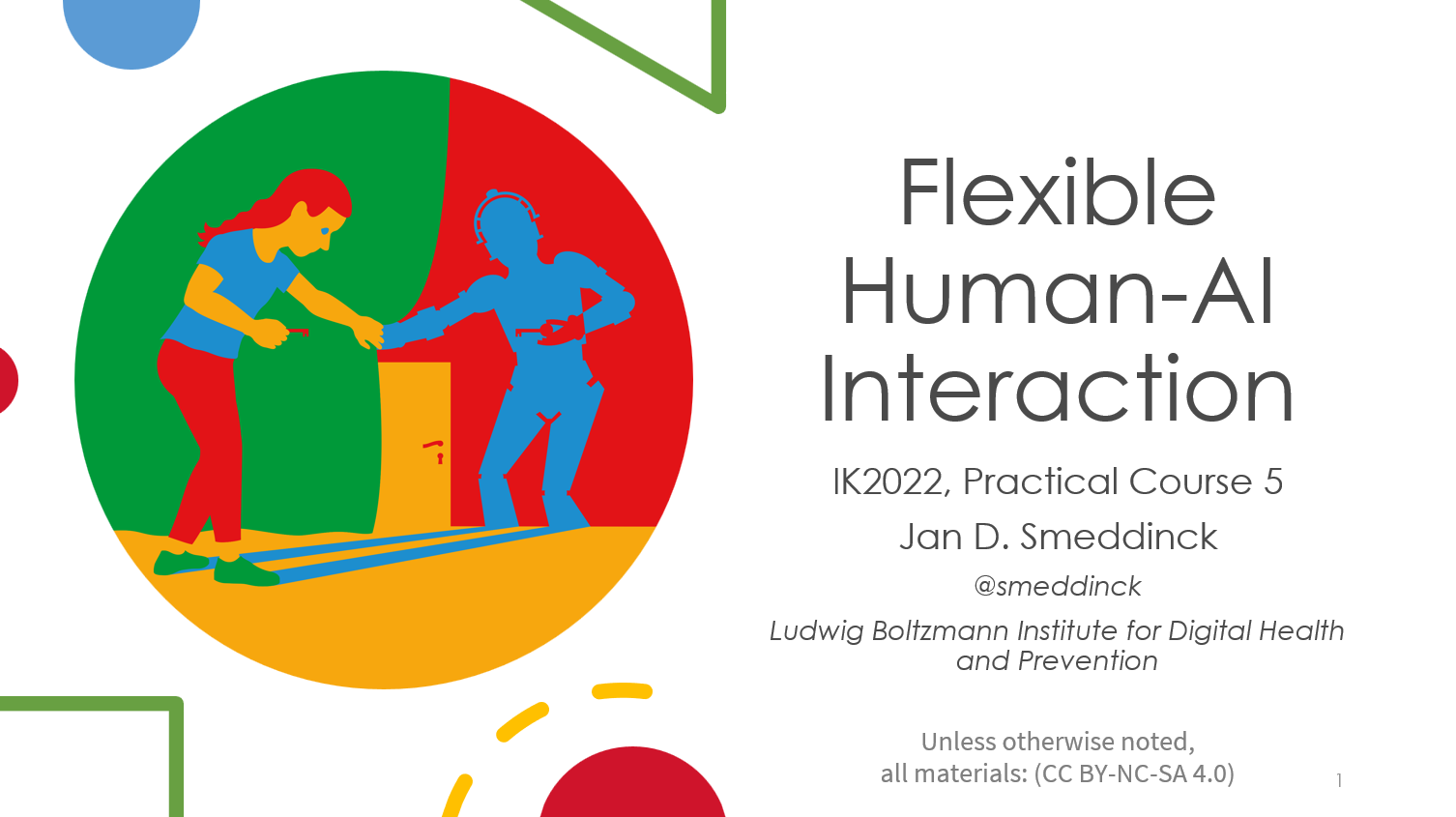Artificial Intelligence
Human-AI Interaction
Course on Flexible Human-AI Interaction at the Interdisciplinary College 2022
A Mini Online Lecture Series on Human-AI Interaction

Header slide for the flexible human-ai interaction course at the Interdisciplinary College 2022.
I was very happy to be asked to deliver a mini-online lecture series on “flexible” (the focus topic of the year for IK 2022) human-ai interaction. The course highlighted a range of selected topics from the CSC8611 module “Human-Artificial Intelligence (AI) Interaction & Futures” as it was delivered at Newcastle University - together with Yu Guan as a Co-Lecturer - in 2021 (as part of the new MSc in HCI programme), which in turn built on many underlying resources and related works (with the HAII@CMU module by Haiyi Zhu and Steven Wu; formerly by Chinmay Kulkarni and Beth Kery being a key component).
CSC8611 Human-Artificial Intelligence (AI) Interaction & Futures
The module, CSC8611 Human-Artificial Intelligence (AI) Interaction & Futures, offered at Newcastle University, delved into the critical intersection of human experience and artificial intelligence. Designed by Jan Smeddinck and co-taught with Yu Guan, the course challenged traditional AI/ML curricula by emphasizing human impact and user interfaces, rather than solely focusing on algorithms.
A significant portion of the module explored the historical context of AI, tracing its evolution from early concepts like automata and cybernetics through various “AI springs” and “winters.” It highlighted the shift from ambitious promises of general intelligence to more specific, applied AI solutions, and the eventual resurgence of machine learning, particularly deep learning, driven by increased data availability and computational power.